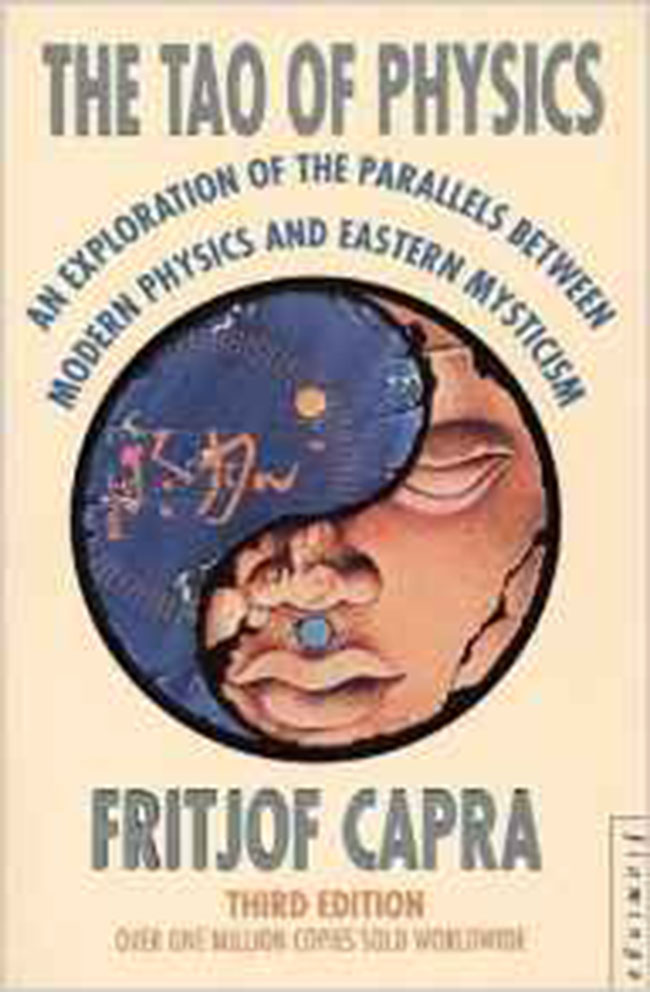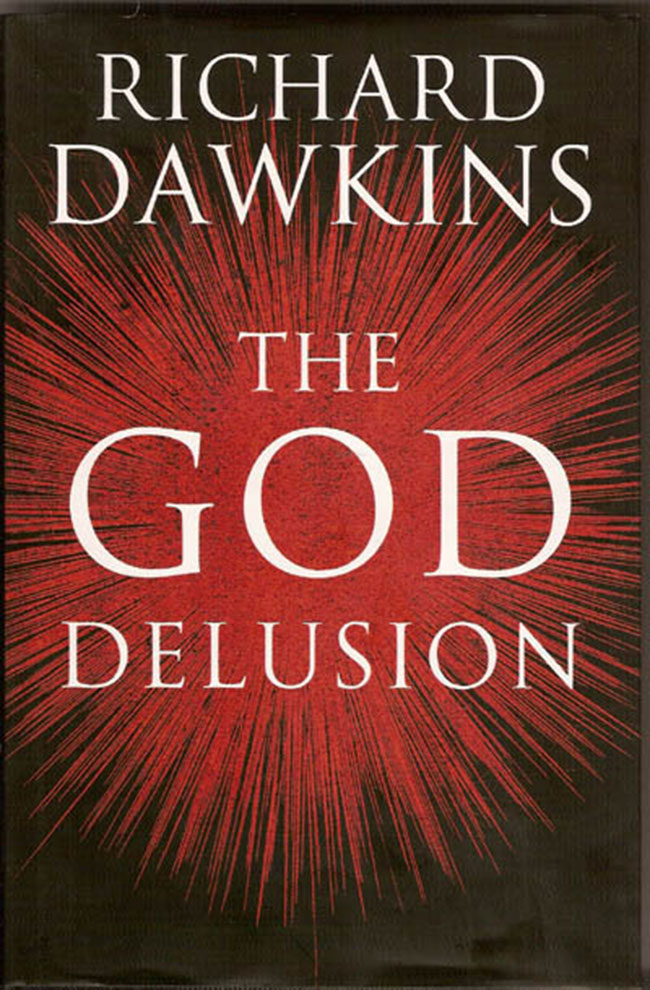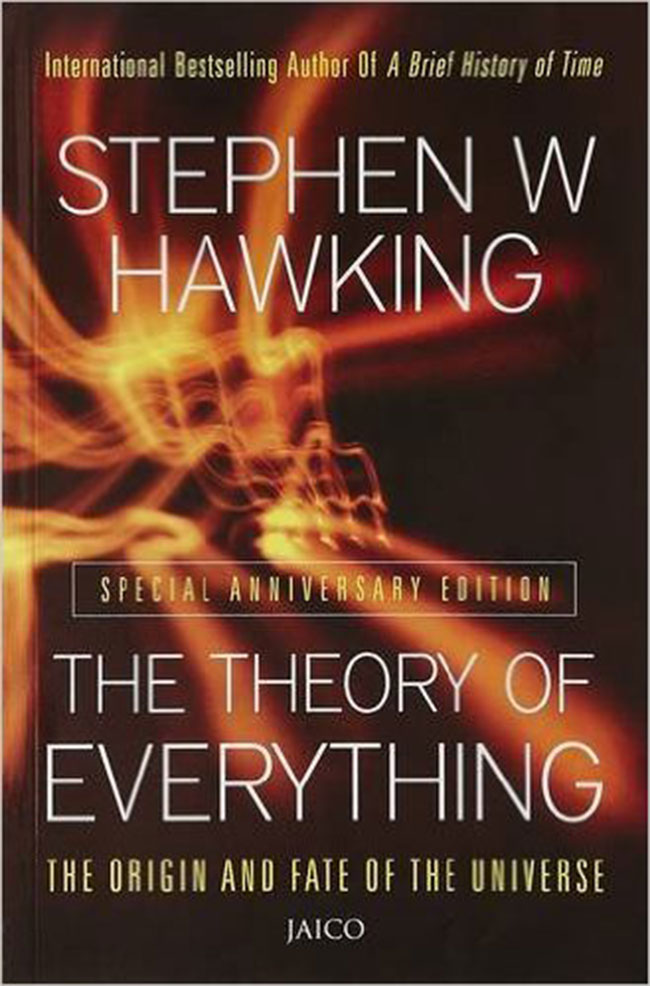
OR
From the history of Homo Sapiens to the mysteries of Gods, genes and the cosmos, here are some great books that have already marked an impression upon the history of mankind and continue to rise profound controversies, support and criticism among the readers.
The God Delusion
Richard Dawkins
“The God of the Old Testament is arguably the most unpleasant character in all fiction: jealous and proud of it; a petty, unjust, unforgiving control-freak; a vindictive, bloodthirsty ethnic cleanser; a misogynistic, homophobic, racist, genocidal, filicidal, pestilential, megalomaniacal, sadomasochistic, capriciously malevolent bully,” quotes Dawkins. The God Delusion by Richard Dawkins, which reads like a declaration of war upon mainstream religion, might offend the religious population but provides relief to many skeptics as well. Dawkins has provided many legitimate arguments, references to historical figures and scientists who were or could have been atheists and talks about the harms that godly devotion brings to mankind.
The Theory of Everything
Stephen Hawking
This short book by Stephen Hawking is a compilation of several lectures that have been given by him. Many ideas from his past books echo in this one. Hawking has explained sophisticated and complex mathematical ideas in a simplified and comprehensible manner in this book. He explains the Big Bang, black holes, and space-time theory and incorporates these thoughts into the search for a unified theory of everything while covering the history of ideas about the universe from Aristotle, Augustine, Newton, Einstein, Hubble, and Feynman as well. Hawking is one of the most brilliant theoretical scientists to communicate the ideas in a way to make it understandable to everyone, not just scientists.
Parallel Worlds
Michio Kaku
Parallel Worlds takes us on a dizzying ride on the mysteries of the cosmos to explore black holes and time machines, multidimensional space and, most tantalizing of all, the possibility that parallel universes may lay alongside our own. “With deft use of analogy and humor, Kaku patiently introduces the reader to variations on this theme of parallel universes, coming from quantum mechanics, cosmology, and most recently, M-theory. Read this book for a wonderful tour, with an expert guide, of a cosmos whose comprehension forces us to stretch to the very limits of imagination,” quotes Brian Greene; professor of theoretical particle physics at Columbia University.
The Gene
Siddhartha Mukherjee
Weaving science, social history, and personal narrative to tell us the story of one of the most important conceptual breakthroughs of modern times, Mukherjee embarks on a quest to understand human heredity and its surprising influence on our lives, personalities, identities, fates, and choices. Mukherjee’s own family’s tragic history of mental illness accompanies the storyline and provides us an insight on the effects of genes on everyday life. In superb prose, he describes the research and experimentation—from Aristotle and Pythagoras to Mendel and Darwin, from Boveri and Morgan to Crick, Watson and Franklin, all the way through the twenty-first century innovators who mapped the human genome.
The Tao of Physics
Fritjof Capra
Reigning for over 30 years, The Tao of Physics enjoys a bit of a cult status as Capra draws out the parallels between quantum theory, relativity and Eastern mysticism and belief. “Physicists do not need mysticism,” Dr. Capra says, “and mystics do not need physics, but humanity needs both.” It’s a message of timeless importance. Some may mistake his theories as mere speculations inclined too much over mysticism but Capra provides a very good job of describing what physics has to say about the nature of the universe and, in particular, our theories about space and time, and points out the similarities in how Shintoism, Buddhism etc. view the universe by comparison.
Cosmos
Carl Sagan
Cosmos has a wider span than most popular scientific books and gives a vivid introduction to astronomy as well as to evolutionary biology, geology, and the history of science. Putting our small planet, and our existence on it, into this stupefying perspective, Sagan asks if ours is the only world in the universe that has life on it. To be able to at least speculate about life elsewhere, he explains the basics for life on Earth and how it evolved. He describes the chemistry of life and how life’s building blocks are known to form spontaneously in different parts of the universe.
Guns, Germs and Steel







Jared Diamond
‘Guns, Germs, and Steel’ is an anthropological study that charts and explains the fates of different people throughout human history. Diamond covers a vast time period and geographical terrain throughout this book, starting with the beginning of humanity and covering human development and expansion into the earth’s five habitable continents: Africa, Europe, Eurasia, and North and South America. However, rather than dwelling on the earliest stages of humanity, Diamond’s focus is on what happened when human beings evolved to the level of modern humans and showed evidence of more advanced thought processing and skills (as indicated by the artifacts they left behind).
Sapiens: A Brief History of
Humankind
Yuval Noah Harari
Already translated into 200 languages, Sapiens: A Brief History of Humankind is a book that examines the roles that evolving humans have played; from the cognitive revolution through to empire and globalization, weaving together science and history to bring new perspective to modern man’s time on this planet. This book takes us on a slow and steady journey from the instance where Homo Sapiens showed sudden improvement in brainpower to outperform their rivals to the development of languages to communicate to Agricultural Revolution when Homo sapiens stopped relying on hunting and instead began cultivating crops and domesticating animals and goes on further until the present time.
(compiled by Reya Shreya Rai)
You May Like This

Kaiser Library awaits renovation
KATHMANDU, Sept 4: Around 60,000 books including some rare manuscripts have somehow been stuffed into two tiny, congested rooms in the... Read More...

Why Adele thought ‘Hello’ would flop
Adele, who took home five Grammy Awards on Sunday, said she had worried her heart-wrenching global mega hit Hello would be a... Read More...

571 valuable books of Yogi Naraharinath collected
DANG, Sept 15: In a bid to preserve books of historical significance, Brihad Adhyatmik Parishad, a religious council, has collected 571... Read More...




Just In
- Rainbow tourism int'l conference kicks off
- Over 200,000 devotees throng Maha Kumbha Mela at Barahakshetra
- Indians vote in the first phase of the world’s largest election as Modi seeks a third term
- Kushal Dixit selected for London Marathon
- Nepal faces Hong Kong today for ACC Emerging Teams Asia Cup
- 286 new industries registered in Nepal in first nine months of current FY, attracting Rs 165 billion investment
- UML's National Convention Representatives Council meeting today
- Gandaki Province CM assigns ministerial portfolios to Hari Bahadur Chuman and Deepak Manange






_20220508065243.jpg)








Leave A Comment